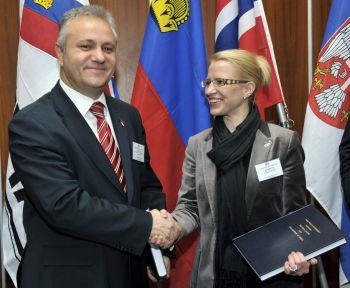- Serbia
Get to know Serbia
- Citizens
Culture and science
Health services
Pension and disability insurance
- Business
Employment
Economy
- Media
- Government
- Contact
Keep in touch
Contact form
Back
Keepin touch
Whether you have a question, comment, suggestion or any problem in the purview of the government, send us your message and we will try to respond as soon as possible. If your problem is not in our purview, we will forward your message to the relevant institution.
Q:
A:
Free trade agreement with EFTA signed
Belgrade/Geneva,
17 December 2009
Deputy Prime Minister and Minister of Economy and Regional Development Mladjan Dinkic today signed a free trade agreement between Serbia and EFTA countries, in Geneva.
Dinkic, who is in Geneva at an EFTA ministerial conference, said that the signing of this agreement is one more step towards improving Serbia’s position regarding free trade.
He said that the free trade agreement with EFTA, which has a market of 13 million consumers, will come into force from April next year, after ratification in the Serbian Parliament and that it will make it possible for Serbia to export to EFTA countries without customs duties.
The Deputy Prime Minister said that this year Serbia signed free trade agreements with Turkey and Belarus and that it already has similar agreements with the EU, Russia and CEFTA countries.
Dinkic said that this means that Serbia can export without customs duties to a market of more than 800 million consumers, stressing that this is a great opportunity not only for Serbian producers and exporters but also for attracting new foreign investments.
Trade with the EFTA region currently stands at more than €260 million and will increase significantly as a result of this agreement. Investments from EFTA countries stand at nearly €2 billion.
He said that there will be more investments in the future and that Serbia will benefit greatly from this agreement.
The host of the EFTA ministerial conference in Geneva was President of the Swiss Confederation Doris Leuthard.
Today in Geneva Dinkic also met with Director General of the World Trade Organisation (WTO) Pascal Lamy and discussed Serbia’s accession to this organisation.
They agreed that joining the WTO will bring numerous benefits to the Serbian economy in international trade.
Dinkic stressed that Serbia has to become a WTO member in order to join the EU, adding that next year it will try to step up this process.
He also noted that Serbia is conducting bilateral talks with several countries, the goal of which is to increase Serbia’s security as a foreign investment target.
EFTA was founded by the Stockholm Convention in 1960 and the founding countries were Austria, Denmark, Norway, Portugal, Sweden, Switzerland and the UK, while Iceland and Finland joined later.
The countries that later joined the EU left EFTA, therefore the organisation now has four members, namely Iceland, Lichtenstein, Norway and Switzerland. EFTA has concluded 18 agreements on free trade with various countries.
He said that the free trade agreement with EFTA, which has a market of 13 million consumers, will come into force from April next year, after ratification in the Serbian Parliament and that it will make it possible for Serbia to export to EFTA countries without customs duties.
The Deputy Prime Minister said that this year Serbia signed free trade agreements with Turkey and Belarus and that it already has similar agreements with the EU, Russia and CEFTA countries.
Dinkic said that this means that Serbia can export without customs duties to a market of more than 800 million consumers, stressing that this is a great opportunity not only for Serbian producers and exporters but also for attracting new foreign investments.
Trade with the EFTA region currently stands at more than €260 million and will increase significantly as a result of this agreement. Investments from EFTA countries stand at nearly €2 billion.
He said that there will be more investments in the future and that Serbia will benefit greatly from this agreement.
The host of the EFTA ministerial conference in Geneva was President of the Swiss Confederation Doris Leuthard.
Today in Geneva Dinkic also met with Director General of the World Trade Organisation (WTO) Pascal Lamy and discussed Serbia’s accession to this organisation.
They agreed that joining the WTO will bring numerous benefits to the Serbian economy in international trade.
Dinkic stressed that Serbia has to become a WTO member in order to join the EU, adding that next year it will try to step up this process.
He also noted that Serbia is conducting bilateral talks with several countries, the goal of which is to increase Serbia’s security as a foreign investment target.
EFTA was founded by the Stockholm Convention in 1960 and the founding countries were Austria, Denmark, Norway, Portugal, Sweden, Switzerland and the UK, while Iceland and Finland joined later.
The countries that later joined the EU left EFTA, therefore the organisation now has four members, namely Iceland, Lichtenstein, Norway and Switzerland. EFTA has concluded 18 agreements on free trade with various countries.
-
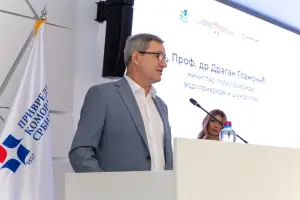 Belgrade, 11 August 2025
Belgrade, 11 August 2025Support for agricultural projects worth RSD 750 million
-
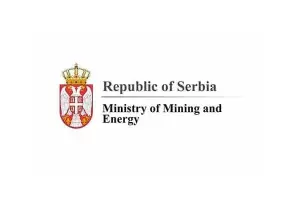 Belgrade, 21 July 2025
Belgrade, 21 July 2025Construction of oil pipeline with Hungary to begin early next year
-
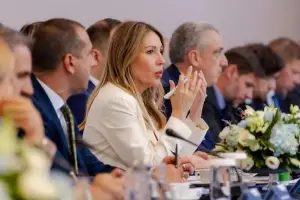 Belgrade/Athens, 17 July 2025
Belgrade/Athens, 17 July 2025Serbia continues to align with EU in field of energy
-
 Kostolac, 14 July 2025
Kostolac, 14 July 2025First solar power plant Petka in Kostolac put into trial operation
-
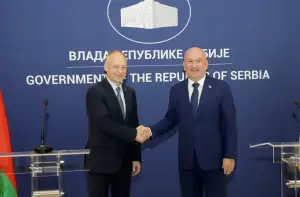 Belgrade, 11 July 2025
Belgrade, 11 July 2025Potential for improving cooperation with Belarus in many areas
-
 Požega, 5 July 2025
Požega, 5 July 2025Section of Pakovraće - Požega highway officially opened
-
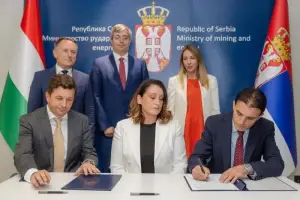 Belgrade, 2 July 2025
Belgrade, 2 July 2025Technical specifications defined for Serbia-Hungary oil pipeline
-
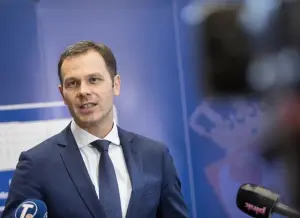 Belgrade, 30 June 2025
Belgrade, 30 June 2025IMF confirms Serbia successfully implementing all agreed reforms
-
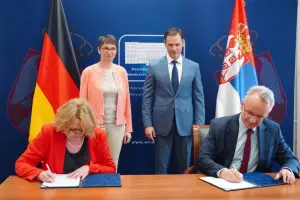 Belgrade, 27 June 2025
Belgrade, 27 June 2025Double Taxation Avoidance Agreement with Germany signed
-
 Kostolac, 25 June 2025
Kostolac, 25 June 2025Construction of Kostolac wind farm nearing completion

